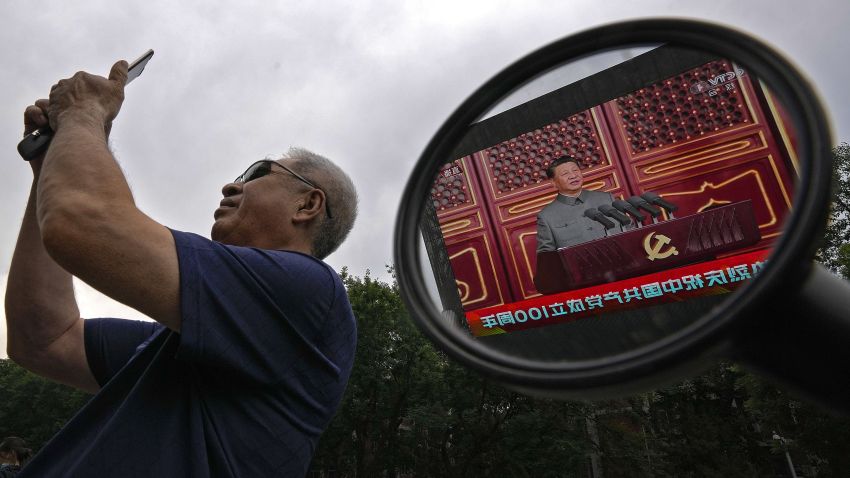During the 2022 Winter Olympics, Chinese American gold medalist Eileen Gu captivated Chinese social media users with her athletic prowess on the ski slopes and her family-friendly, “girl power” narrative. Posts about Gu’s events went viral on Weibo and WeChat, winning her piles of money in endorsements and commercial sponsorships.
Writer Geling Yan’s attention, however, was focused on another viral trend. In a video that’s gained more than 1.9 billion views, a woman known only as Yang is seen in a dark, windowless shack in the northwestern province of Xuzhou with shackles wrapped around her neck. Wearing a pink sweatshirt, her hair matted with dirt, Yang is shown shivering in the winter air while her husband parades eight children around at the front of their house like trophies.
Writing in a poetry magazine in February, Yan addressed the eight children that the chained woman presumably gave birth to: “Wake up, children! You are helping your murderous, abusive father slowly kill her!” The article added fuel to the public outrage over Yang’s suffering and the local authorities’ apparent unwillingness to intervene. Her writing’s aim was not only to comment on Yang’s situation, but also to connect the Xuzhou video to the broader issues of human trafficking and marital violence. Once a U.S.-based dissident scholar cited the essay and added broader political criticisms, Yan’s name was summarily erased from several Chinese websites and databases mentioning the incident.

